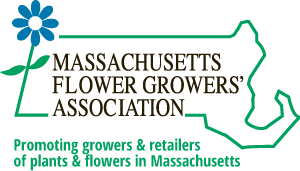Join us on March 4, 2025, for part 2 of a virtual education program that will provide you with more knowledge and insights you can use in the 2025 growing season.
Agenda
8:30 AM - How To Manage Mites in Ornamental Greenhouse Crops
Dr. JC Chong, Technical Development Manager, SePRO Corporation, and Adjunct Professor of Entomology, Clemson University
Mites are among the most difficult pests to manage in greenhouse production. In this session Dr. Chong will present tips and tricks on how to manage different mites including two spotted spider mites, broad mites, cyclamen mites and Lewis mites.
9:30 AM - Break
9:45 AM - Supplemental Nutrition for Biological Control Agents
Veronica Cervantes, Biobest® IPM Technical Development Lead
Biocontrol agents require good nourishment to survive and reproduce and increase in numbers on the crop. Supplementing nutrition helps to provide high value food for predators and parasitoids when there is no pest pressure or no flowers with pollen on the crops. It also helps us to start the biocontrol program early in the season and sustain pest control through the season. This session will discuss the theory and the application of nutritional supplement products.
10:45 AM - Break
11:00 AM - Biostimulants Use in Greenhouse Production
Dr. Michelle L. Jones, Professor and D.C. Kiplinger Floriculture Endowed Chair, Ohio State University Department of Horticulture and Crop Science
Biostimulants are products that stimulate natural process in plants to promote plant growth and enhance stress tolerance. They may contain many different active ingredients including humic and fulvic acids or plant growth promoting microorganisms. Getting consistent plant responses to biostimulant applications is a challenge and the efficacy of the products, especially those that contain microorganisms, is highly influenced by environmental conditions, substrate composition, plant species, and fertilizer applications. This session will share some successes with biostimulants and some challenges, and discuss the importance of conducting in-house trialing of new products.
Pesticide Credits
Three pesticide credits in Massachusetts categories 26, 29, 31 and 000 (Applicator's License/Core) have been approved for this program. Credits are valid for equivalent categories in all New England states. To receive pesticide credits, you must register with your unique email address, log in with your own device, answer all the poll sessions, and complete the survey after the webinar.
After registration, you will receive an email closer to the event date with instructions on how to join the meeting.
Special thanks to the Massachusetts Flower Growers Association! Their gracious support has reduced participation fees for this event.
Their gracious support has reduced participation fees for this event.